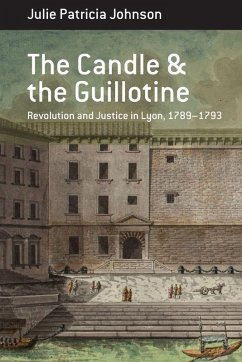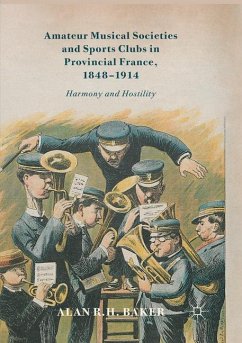
Provincial Patriot of the French Revolution
François Buzot, 1760-1794
Versandkostenfrei!
Versandfertig in 1-2 Wochen
105,99 €
inkl. MwSt.
Weitere Ausgaben:

PAYBACK Punkte
53 °P sammeln!
Provincial Patriot of the French Revolution: François Buzot, 1760-1794, provides a personal perspective on the dramatic events of the French Revolution between 1789 and 1794. By examining the life and observations of this Girondin deputy from Evreux, it is possible to better understand the inherent difficulties involved in transforming an ancient monarchy into a modern republic.














